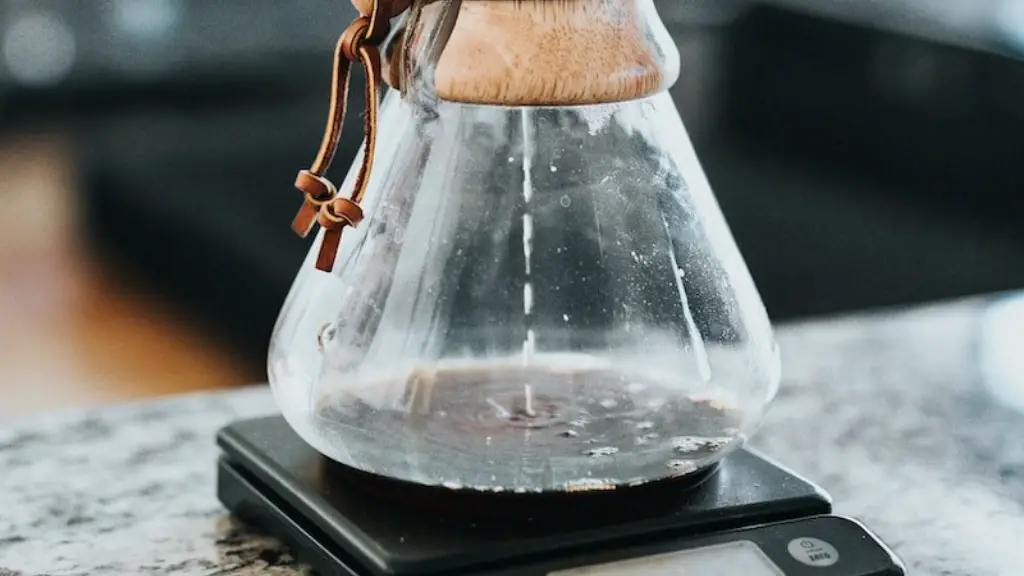Can You Drink Decaf Coffee After Embryo Transfer?
Decaf coffee is a popular choice for those wishing to reduce their caffeine intake. During in vitro fertilisation (IVF) treatments, consumption of caffeine is usually discouraged, particularly after embryo transfer, as it may decrease the chances of pregnancy. Therefore, many people may wonder if it is acceptable to drink decaf coffee during this period.
One of the main arguments against consuming caffeine after an embryo transfer is that it can have a detrimental effect on fertility levels. Studies have shown that drinking more than 200mg of caffeine per day can reduce a woman’s chances of becoming pregnant by up to 50%. This risk is further exacerbated if a woman is using IVF treatments such as embryo transfer. Therefore, it is important to be mindful of the amount of caffeine consumed by women undergoing IVF.
Decaf coffee is a great alternative to regular coffee for those looking to reduce their caffeine intake. On average, decaf coffee contains around 3mg of caffeine per 250ml cup. However, this number can vary significantly depending on the type and method of decaffeination.
High-quality methods of decaffeination, such as Swiss Water Decaf, typically remove around 97% of the caffeine content. This means that using these methods, it is likely that decaf coffee will only contain trace amounts of caffeine, meaning that the risk of consuming too much is low. It is often recommended, however, that women who are undergoing IVF treatments should avoid caffeine completely to reduce the risk of negative effects.
Furthermore, some studies have suggested that regular coffee could have a beneficial effect on fertility in some cases. These studies indicate that consuming up to 4 cups of coffee per day could increase the chances of pregnancy for some women undergoing IVF treatments. Whilst this may be the case, the risks of drinking high amounts of caffeine are still considered high, and it is recommended that women proceed with caution.
Regular consumption of caffeine has also been linked to increased levels of stress and anxiety. This can have a further negative effect on fertility levels as both of these can reduce the chances of pregnancy. Decaf coffee can help to reduce the overall impact of these on fertility as it has a much lower caffeine content than regular coffee.
Overall, the answer to whether decaf coffee can be consumed after an embryo transfer is a personal one. Generally speaking, it is wise to be cautious and avoid consuming caffeine altogether during IVF treatments, including decaf coffee. However, if you do choose to drink decaf coffee, it is important to be mindful of the caffeine content, as well as the brewing method used.
What Are My Alternatives to Coffee?
Trying to cut down on coffee can be difficult, so it is important to find suitable alternatives that can provide you with an energy boost. Many herbal teas are caffeine-free, meaning that these can be consumed to keep you feeling refreshed throughout the day. Green and fruit teas are great options as these often have uplifting and calming properties.
In addition, there are also several caffeine-free energy drinks available. These drinks often contain a blend of herbs, vitamins and minerals and are designed to help boost energy levels without being overly stimulating. For those who prefer coffee-like drinks, there are also several instant coffees available that are decaffeinated using natural methods.
It is also important to look after your diet to ensure that you are consuming enough energy. Eating a wide variety of fresh fruits and vegetables, lean proteins, and healthy fats is a great way to ensure that you have enough energy throughout the day. Plus, focusing on whole foods can help to reduce cravings for processed snacks, further helping to reduce caffeine intake.
What Are the Benefits of Drinking Decaf Coffee?
Even though it is recommended to avoid caffeine completely during IVF treatments, there are still several benefits to drinking decaf coffee. Unlike regular coffee, which can cause digestive discomfort and upset, decaf coffee does not contain the same irritants that can cause this.
Decaf coffee is also lower in the antioxidants caffeine and tannins, two plant compounds found in coffee that can have a positive effect on health. This means that drinking decaf coffee still provides some of the health benefits associated with normal coffee.
Finally, decaf coffee still provides the same wonderful smell and taste as regular coffee, without the need to worry about caffeine consumption. This can reduce stress and help to create a calmer and more relaxed atmosphere when preparing for an embryo transfer.
How Can I Cut Down Caffeine During IVF?
Reducing caffeine intake during IVF treatments is a good way to ensure that pregnancy levels are not affected. There are several ways that you can start to reduce your caffeine intake, such as switching to lower-strength brands of coffee, drinking smaller sizes, or limiting caffeine intake to just one cup per day.
It is also beneficial to look for sources of caffeine other than coffee. Tea, soft drinks, energy drinks, and chocolate all contain caffeine and should be limited or avoided during IVF treatments. Be sure to read the nutrition and ingredients labels on these products to identify how much caffeine is present.
Finally, swapping out coffee completely for caffeine-free alternatives is often the best way to ensure that caffeine levels are kept low. Switching to herbal teas, decaf coffee, or naturally decaffeinated tea can provide the same taste and energy boost without the worry.
Are There Any Risks For Drinking Decaf Coffee?
Whilst decaf coffee does not contain as much caffeine as regular coffee, there is still a chance that consuming it could still reduce fertility levels. As with regular coffee, it is important to keep track of the amount and type of decaf coffee that is being consumed to ensure that it does not interfere with IVF treatments.
In addition, some decaffeinated beans may contain chemicals that can be harmful to fertility levels. Supercritical carbon dioxide and ethyl acetate are two common chemicals that are used in decaffeination processes. Whilst these chemicals are generally deemed safe, it is a good idea to check the product label to ensure that they have not been used.
Finally, some decaf coffees are not fully decaffeinated. Not all manufacturers use reliable and effective decaffeination processes, meaning that their products may contain higher levels of caffeine than expected. It is important to do your research and choose high-quality decaf coffees to reduce the risk of consuming too much caffeine.
How Can I Manage Cravings for Caffeine?
During IVF treatments, it is quite common to experience cravings for caffeine as regular consumption is restricted. However, there are several ways that these cravings can be managed and eventually eliminated.
Firstly, keeping track of caffeine consumption can help to prevent cravings from getting out of control. Many health apps and websites offer tools that can help to monitor your daily caffeine consumption. These can make it easier to focus on reducing consumption gradually.
Increasing consumption of water is also a great way to reduce cravings without relying on caffeine. Not only does water keep you hydrated and alert, but it also prevents the feeling of being over-tired. Replacing caffeinated drinks with herbal teas can also help to keep cravings at bay.
Lastly, taking up relaxation techniques such as mindfulness and yoga can be beneficial. Not only do these activities provide an energy boost, but they can also help to reduce stress levels, making it easier to manage any cravings that may arise.





